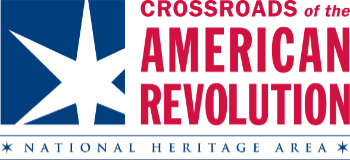Biography People
Thomas Clarke Full Biography
I was born September 29, 1742 on the farm near Princeton of John Clarke and his wife Sarah. My family was originally from Scotland and my grandfather had come to America after converting to the Quaker faith and seeking a welcoming community on lands owned by William Penn. My family became large landowners and founders of the Stony Brook Quaker community about 1696 and in 1709 provided land for the Quaker Meeting House. After my father died in 1768, my older brother, William, sold me a farm next to his from the land he inherited.
I never married, but shared my house and farm with my sister Sarah. We, along with several of our siblings, owned a slave woman named Susannah. At the time of the American Revolution, Quakers were opposed to slavery and, like many, we granted Susannah her freedom in 1779, when she was about thirty years old.
We Quakers did not believe in swearing oaths of loyalty or participating in any kind of warlike activities. This made life difficult during the American Revolution when both sides looked down on us for not being more active in supporting their cause. In December 1776, in addition to placing Hessian troops at Trenton and the Bordentown area, British army forces also occupied Princeton for winter quarters, after chasing General Washington to Trenton and across the Delaware River to Pennsylvania and removed all the boats they could have used to follow him. These troops needed many things, from firewood to food for men and horses and we farmers around Princeton suffered the loss of food supplies, fences, trees, animals, and other items to groups of British soldiers.
After General Washington captured most of the Hessians at Trenton on December 26, 1776, even more British soldiers came to Princeton preparing to attack Washington at Trenton, to which he had returned his army a few days after the battle there. We got some relief when General Cornwallis marched most of his large army out of Princeton on the morning of January 2, 1777 to attack Trenton. They left behind about 1500 troops along with some supplies, so we were not completely free of them. Cornwallis sent orders for most of those troops to follow him to Trenton very early on the morning of January 3 and Lieutenant Colonel Mawhood marched them down the post road past the farms of my family members and those of our neighbors, who were also Quakers.
While the British were marching towards Trenton, we were surprised when George Washington’s army began passing by our house, on a side road we knew as the Sawmill Road, heading towards Princeton. Although about a mile apart, Washington’s and Mawhood’s forces spotted each other and part of Washington’s forces, led by General Hugh Mercer, broke off and headed towards the British across my farm and also William’s farm. A battle lasting less than an hour took place on our farms before Washington came riding onto the field with several Continental regiments to rally his troops and sent the British flying from the field. He then pushed on and took the town of Princeton.
During the fighting on William’s farm, General Mercer became dismounted when his horse was wounded, but kept trying to rally his men who were facing a British bayonet charge without having many bayonets of their own. As Mercer fought, a British soldier used his musket as a club and hit him on the side of his head. Although dazed, he kept fighting with his sword until collapsing from a number of British bayonet stabs. In the confusion, he was left for dead, but was found by his men to be still alive. He was carried to our house and put in a bed. My sister and Susannah tended to him and several other wounded soldiers, along with British and American doctors, including Dr. Benjamin Rush, a member of the Continental Congress.
We did all we could for General Mercer and for a while it seemed like he would recover, but he died on January 12 and was removed from our house for burial. We and our Quaker neighbors had been caring for wounded from both sides and also burying the dead during those days after the battle. Our quiet, peaceful lives had been mightily disrupted by this unexpected battle with all of the horrors and human suffering that resulted.
We recovered and carried on life more or less normally for the rest of the Revolution and the early years of our new nation. I died in 1802 and left my farm to Sarah. It stayed in the family until the 1860s and over the years the house has been added to and modified a number of times. Today, it is preserved as part of the Princeton Battlefield State Park where it continues to tell the story of the American Revolution and our lives as Quaker farmers.
